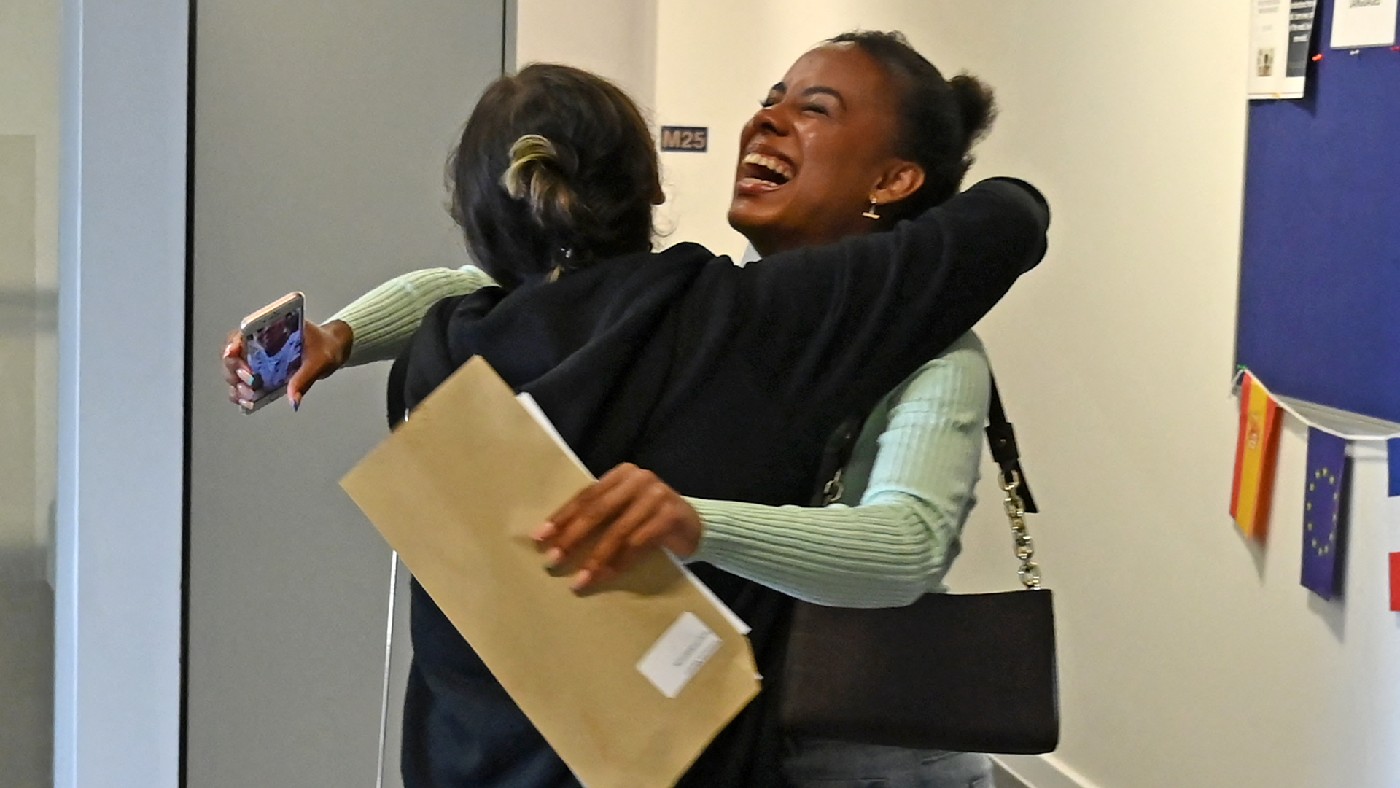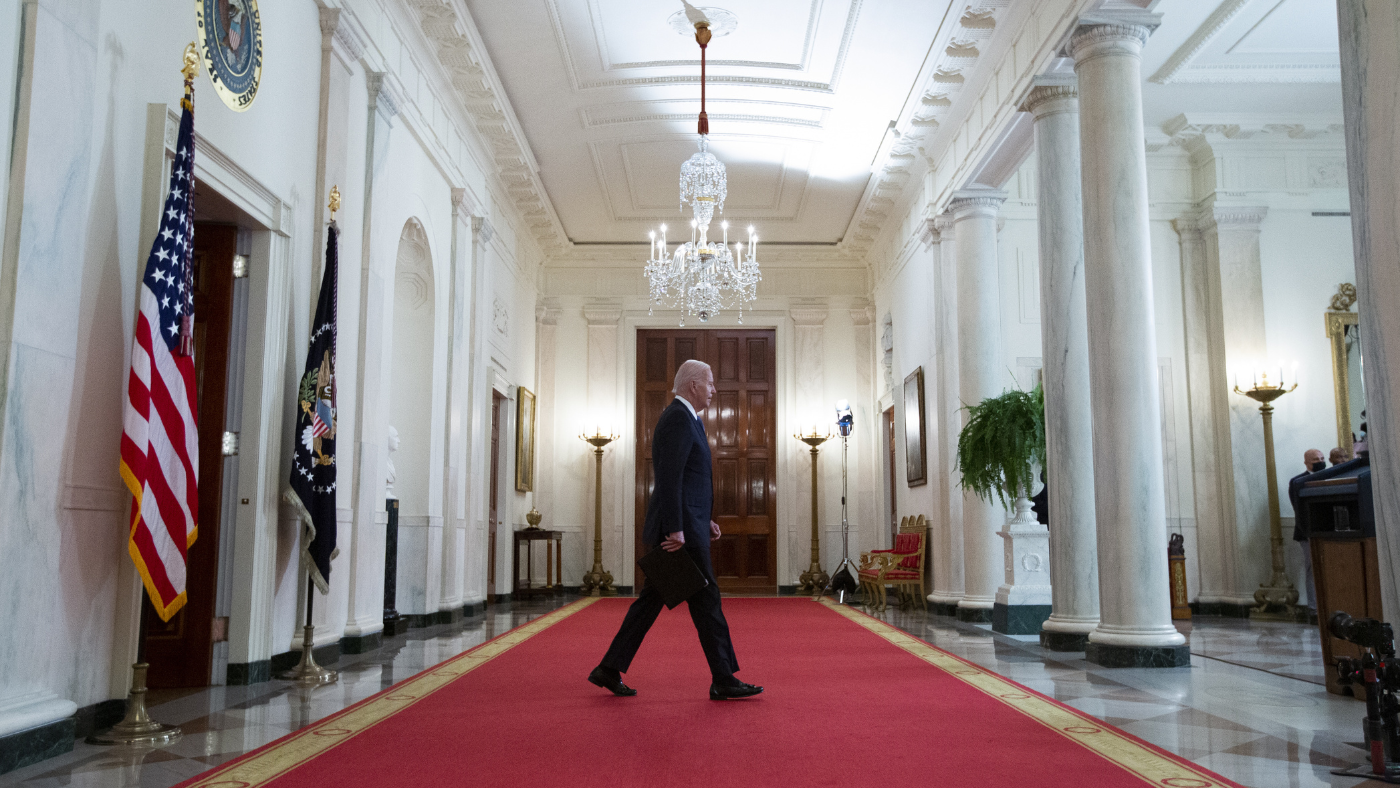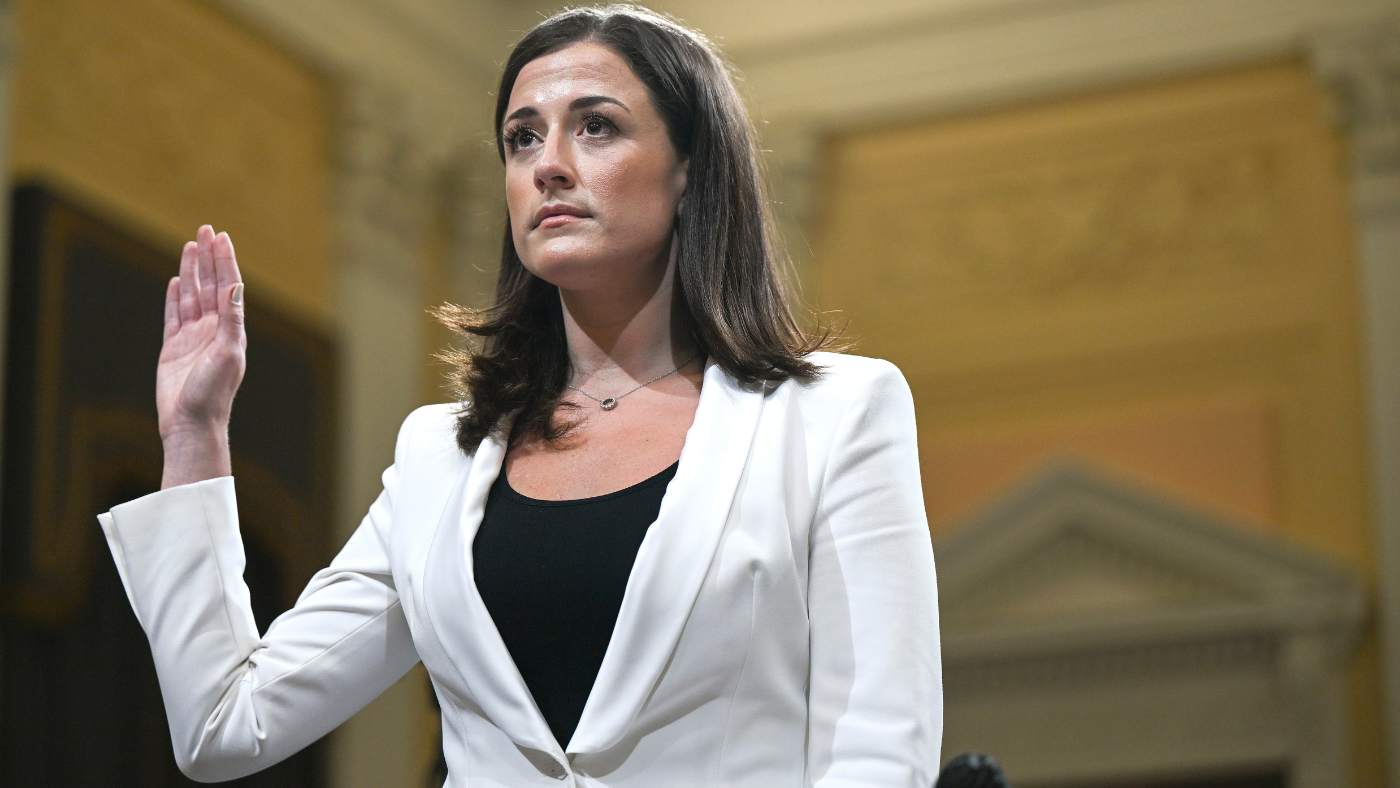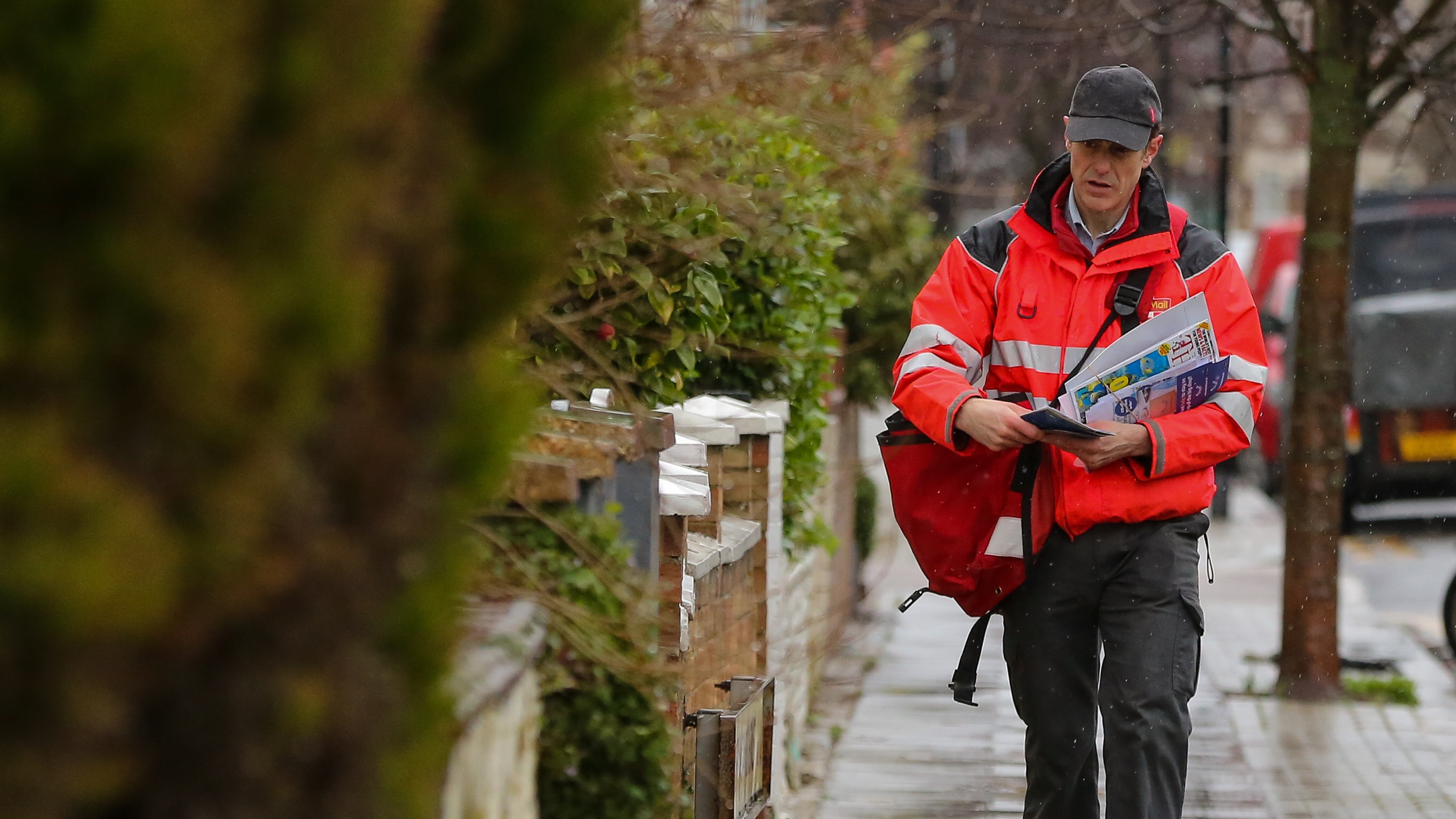‘A change in grading could be a timely and useful way for the government to ‘reset’ A-levels’
Your digest of analysis and commentary from the British and international press

- 1. How can we reform the A-level system?
- 2. The Geronimo campaign is about more than an alpaca – it’s about fixing a policy that has failed farmers
- 3. China’s crackdown on tech and tutoring is really directed at inequality
- 4. The callousness and greed of men like Boris Johnson and David Cameron is the product of a private education
- 5. Britain’s being told to ‘get back to the office’. But is that really what we want?
A free daily email with the biggest news stories of the day – and the best features from TheWeek.com
You are now subscribed
Your newsletter sign-up was successful
1. How can we reform the A-level system?
Nicola Woolcock in The Times
on an exam shake-up
Only last summer, all GCSEs were “finally graded numerically rather than alphabetically” and now A-levels could “follow suit”, writes education editor Nicola Woolcock in The Times. A change in grading methods “could be a timely and useful way for the government to ‘reset’ A-levels after the past two years of grade inflation”, she says. Grading all exams nine to one, with “the highest number equalling the highest grade” theoretically allows more numbers to be added to the system, “just as the A* was added to A-levels a decade ago”. Education Secretary Gavin Williamson has talked about a “glide path to normality”, Woolcock adds, but in this case the system needs to be reset “swiftly” – after all, “we are talking about the future prospects of millions of children”. Without reforming the grading system, many schools “are likely to introduce their own tests”, says Woolcock, which “would add another layer of assessment for pupils trying to recover lost learning”.
The Week
Escape your echo chamber. Get the facts behind the news, plus analysis from multiple perspectives.

Sign up for The Week's Free Newsletters
From our morning news briefing to a weekly Good News Newsletter, get the best of The Week delivered directly to your inbox.
From our morning news briefing to a weekly Good News Newsletter, get the best of The Week delivered directly to your inbox.
2. The Geronimo campaign is about more than an alpaca – it’s about fixing a policy that has failed farmers
Dominic Dyer in The Independent
on ‘bloody-minded’ policy
This week, animal welfare campaigner and author Dominic Dyer spoke at a protest outside Downing Street which called for Geronimo, the alpaca who has twice tested positive for bovine tuberculosis (bTB), to have his government-mandated death sentence revoked. The demonstration “probably generated more headlines in Britain and around the world than for any previous protest held in this nation for the protection of animals”, says Dyer in The Independent. “The battle to save this creature has now become an issue of global interest”. To some observers, this story could be dismissed as “summer madness”, he adds. However the story “goes far deeper than a simple outpouring of sentiment over a cute, fluffy alpaca”. At its heart is “an incredibly brave and courageous veterinary nurse and alpaca breeder” who has been waging a battle with the Department for Environment, Food and Rural Affairs (Defra) for more than five years. Her campaign has “shone a spotlight on the inconsistency, lack of transparency, and it seems to me sheer institutional bloody-mindedness” of Defra’s TB control policy. This case could be a “major turning point” in amending the policy, says Dyer. “Ultimately” this will “better protect farmers, alpaca owners… and the future of our precious badgers”.
A free daily email with the biggest news stories of the day – and the best features from TheWeek.com
3. China’s crackdown on tech and tutoring is really directed at inequality
Aidan Yao in the South China Morning Post
on Chinese censorship
Over the past few weeks, the Chinese government has “cracked down on for-profit education companies, whose pursuit of profit is believed to have widened the gap between the haves and have-nots”, writes Aidan Yao in the South China Morning Post. “Supercharged by capital and thirst for profit”, the education sector is “exacerbating inequality and worsening class divides in society”. The Chinese Communist Party’s crackdown – which has also impacted the country’s technology and fintech industries – are “actually aligned with China’s long-term strategic priority”, namely “common prosperity”. But this is not a goal that can be achieved with “a few idiosyncratic policy changes over a short time”, says Yao. Chinese policymakers also need to factor in the reaction of the financial market to avoid eroding confidence in investing in the country. China “is in uncharted waters and needs to tread carefully”, Yao adds.
4. The callousness and greed of men like Boris Johnson and David Cameron is the product of a private education
Yasmin Alibhai-Brown in The i
on a poisonous upbringing
Over the last few weeks, we’ve heard about Boris Johnson splurging “£100,000 on pictures for the walls of 10 Downing St, partly paid for by taxpayers” and BBC Panorama’s claims that “David Cameron made around £7m from Greensill Capital before it went into administration in March”, writes Yasmin Alibhai-Brown in The i. “No rules have been broken. Obviously. Morality and principles, and standards in personal and public life are for the little people.” We “can and must rage against such injustices and hypocrisies”, she adds, while also asking why these people are able to behave so callously. “How were their characters formed?” Cameron, Johnson and others “were not born this way”. Instead, they are “the products of their upbringing and education” – notably their private education which can lack “emotional literacy or empathy”. In these schools, she says, pupils can be “toughened up [and] set up to become super-capitalists, driven politicians, other kinds of single-minded professionals”.
5. Britain’s being told to ‘get back to the office’. But is that really what we want?
Joel Golby in The Guardian
on heading back to work
“Obviously look away now if you have ever personally employed me, but: I don’t think I’ve ever done an afternoon’s work in my life”, says Joel Golby in The Guardian. “It’s just not really my vibe.” Most of Golby’s focus happens “in the morning”, but once he’s “been to Pret and picked out an egg sandwich it really is game over”. In fact, 60% of Golby’s “salaried working life I just spent looking at football forums and browsing eBay” – but nobody has ever noticed. “This is because most office jobs aren’t really real”, he adds. Now our “Conservative government and conservative bloggers” are telling us “workshy wastrels” to get back in the office. “Remember when [Rishi Sunak] wanted us all back in the office in September 2020? How did that go, in the end?” What’s so good about the office anyway?, asks Golby. The pandemic has created a “once-in-a-generation chance to build office work from the ground up: to re-evaluate the old nine-to-five, to relocate city-centre offices that don’t have any real reason to be in there, to let people work tight four-day weeks to let their life breathe around their jobs, to allow people to take dentist appointments in the middle of the day, to realise that working smart is better than the old-fashioned idea of working hard”.
-
 How the FCC’s ‘equal time’ rule works
How the FCC’s ‘equal time’ rule worksIn the Spotlight The law is at the heart of the Colbert-CBS conflict
-
 What is the endgame in the DHS shutdown?
What is the endgame in the DHS shutdown?Today’s Big Question Democrats want to rein in ICE’s immigration crackdown
-
 ‘Poor time management isn’t just an inconvenience’
‘Poor time management isn’t just an inconvenience’Instant Opinion Opinion, comment and editorials of the day
-
 ‘The UK’s malaise will not end with the Prime Minister’s exit’
‘The UK’s malaise will not end with the Prime Minister’s exit’Instant Opinion Your digest of analysis from the British and international press
-
 ‘Police tactics are not getting worse, they are simply being filmed’
‘Police tactics are not getting worse, they are simply being filmed’Instant Opinion Your digest of analysis from the British and international press
-
 ‘G7 leaders missed a golden opportunity’
‘G7 leaders missed a golden opportunity’Instant Opinion Your digest of analysis from the British and international press
-
 ‘It takes some soul searching to celebrate Canada Day’
‘It takes some soul searching to celebrate Canada Day’Instant Opinion Your digest of analysis from the British and international press
-
 ‘Breakthrough on abortion rights could be there if Biden reaches for it’
‘Breakthrough on abortion rights could be there if Biden reaches for it’Instant Opinion Your digest of analysis from the British and international press
-
 ‘If only Mark Meadows had even half Cassidy Hutchinson’s courage’
‘If only Mark Meadows had even half Cassidy Hutchinson’s courage’Instant Opinion Your digest of analysis from the British and international press
-
 ‘Boris Johnson measures success in biceps rather than brain power’
‘Boris Johnson measures success in biceps rather than brain power’Instant Opinion Your digest of analysis from the British and international press
-
 ‘Asking posties to act as community watchmen is an inspired idea’
‘Asking posties to act as community watchmen is an inspired idea’Instant Opinion Your digest of analysis from the British and international press